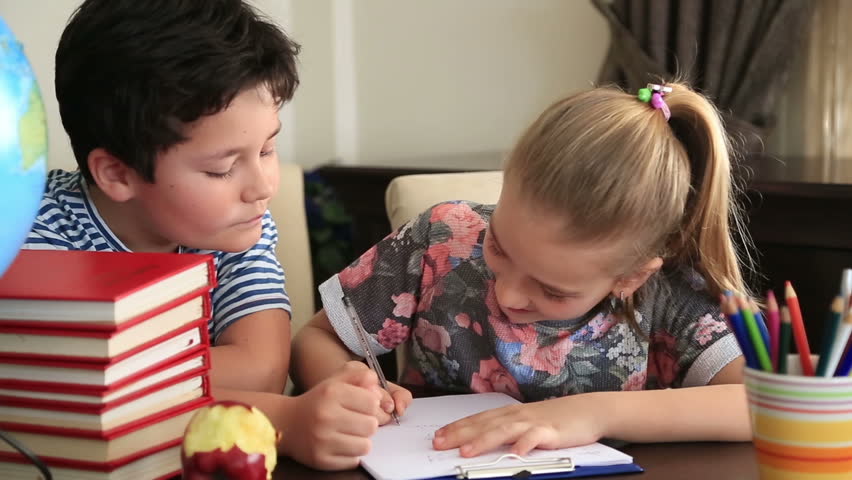How to Improve Your Kids’ Responsibility at Any Age
Feb 6, 2025
As parents, we all want our kids to grow up to be responsible, self-reliant, and capable of handling their own lives with maturity and care. Building responsibility is a skill that takes time and consistent effort, and fortunately, it's something that can be nurtured from a young age. The key is understanding where your child is in their development and adapting your approach accordingly. Whether they’re toddlers, pre-teens, or teens, there are specific strategies you can implement to help them develop a stronger sense of responsibility.
Read more: How Coding Helps Your Kid's Responsibility: Good Effects on Family Dynamics
1. Start Early – Teaching Responsibility from a Young Age
It’s never too early to begin teaching responsibility. Even toddlers can start learning about taking care of their things, cleaning up after themselves, and following simple routines.
For Toddlers (Ages 2-4):
Model Behavior: Children at this age learn by observing, so make sure you're setting a positive example of responsible behavior.
Simple Tasks: Give them small, age-appropriate tasks, like putting away their toys or helping to feed the family pet. Praise them for completing these tasks, which builds their sense of accomplishment.
Routine Building: Establishing simple routines, like brushing teeth or setting the table, helps children learn consistency and what is expected of them.
For Preschoolers (Ages 4-6):
Expand Responsibilities: At this stage, you can introduce a bit more responsibility, like making their bed or putting away laundry. You can even start talking to them about the importance of taking care of their belongings.
Ownership: Encourage them to take ownership of their stuff, from books to toys. For example, rather than asking them to just clean up, make it a habit that they put things back where they belong.
2. Give Them Opportunities to Make Decisions
Giving children choices helps them feel empowered and responsible for their actions. When you give kids the chance to make decisions, you're helping them understand the consequences of their choices, which is an important part of responsibility.
For Young Kids (Ages 5-7):
Small Choices: Let them decide between two shirts to wear or which snack to eat. The act of choosing gives them a sense of ownership over their decisions.
Explain Consequences: If they choose not to do something, like putting away their toys, explain the natural consequence of that choice (e.g., they might not be able to play with those toys later if they aren’t put away).
For Pre-Teens (Ages 8-12):
Increased Freedom: At this stage, kids can handle more complex decisions like managing their allowance, choosing extracurricular activities, or even deciding on family plans.
Balanced Freedom: Allow them the freedom to make some choices but also give guidance and support to make sure those choices are responsible.
3. Set Clear Expectations and Rules
Responsibility thrives in an environment where kids know exactly what’s expected of them. Being consistent with rules and guidelines helps children understand boundaries and the importance of following through.
For All Ages:
Chore Chart: A visible chore chart with clear expectations can help kids understand what they are responsible for every day. Make sure the tasks match their age and abilities.
Clear and Consistent Rules: At any age, make sure the rules are clear and the consequences for not following them are known. Stick to those consequences to teach accountability.
Positive Reinforcement: Praise your kids when they meet their responsibilities. Positive reinforcement helps them feel motivated to continue taking responsibility in the future.
4. Teach Them to Manage Their Time
Teaching kids how to manage their time is crucial for developing responsibility. You can start small and gradually build up as they grow older.
For Kids (Ages 7-9):
Use a Visual Schedule: For younger children, a visual schedule with pictures can help them understand what needs to be done and when.
Time Management Games: You can play games or use timers to help them understand the concept of time and deadlines, such as having them finish a chore before a timer goes off.
For Pre-Teens and Teens (Ages 10-15):
Personal Calendars: Encourage them to use a calendar or planner to keep track of homework, extracurricular activities, and other commitments.
Break Tasks Into Steps: Teach your kids to break larger tasks, like homework or cleaning the garage, into smaller, manageable steps. This makes tasks seem less overwhelming and helps with follow-through.
Tech Tools: Use apps or reminders to help older kids learn to organize their time effectively.
5. Encourage Them to Own Their Mistakes
Mistakes are part of life, and teaching kids to take ownership of their actions is an important part of developing responsibility. It’s important to guide them through making amends rather than shielding them from the consequences of their actions.
For Young Kids:
Teach Accountability: If a mistake happens (e.g., spilling juice or breaking something), instead of fixing it for them, encourage them to help clean up and explain how to avoid making the same mistake next time.
For Older Kids:
Own the Mistake: With older children, talk about how they can make things right when they’ve made a mistake. It’s important they understand that responsibility isn’t just about doing things right but about how to learn from and fix things when they go wrong.
6. Create a Family Culture of Responsibility
Kids learn responsibility not just through what they do but also through what they see. If your family has a culture of responsibility—where everyone contributes, is accountable, and supports each other—it can reinforce the value of being responsible.
For All Ages:
Family Meetings: Hold regular family meetings to discuss household responsibilities, upcoming events, and expectations for everyone. This gives everyone, no matter their age, a chance to share and take responsibility.
Model the Behavior: Your kids will pick up on your behavior more than anything you say. If you demonstrate responsibility in your own life—whether it’s taking care of your work commitments, managing finances, or maintaining personal relationships—your kids will learn to do the same.
7. Be Patient and Encourage Progress
Responsibility is not a skill that develops overnight. It takes time, effort, and encouragement. Celebrate progress, even if it’s small, and be patient with your kids as they learn to manage their own responsibilities. Mistakes will happen, but each one is an opportunity for growth.
Final Thoughts
Instilling responsibility in your kids is a gradual process that requires intentional parenting. Whether it’s through small chores, decision-making opportunities, or teaching time management, kids learn responsibility when we give them the tools to succeed and allow them the freedom to make mistakes. By starting early, setting clear expectations, and modeling responsible behavior, you can help your kids grow into capable, independent individuals ready to face the world with confidence.
Read: The Positive Impact of Coding on Emotional Well-being and Mental Health for Teens
Read: What is the Right Age to Start Coding?
Read: Why Every Teenager Should Learn Coding: Top Benefits for Teens and Parents
Read: What is the Most Popular After-School Activity?
Pinecone Coding Academy's Kids Coding Program
At Pinecone Coding Academy, we are passionate about making coding accessible and enjoyable for kids aged 8-17. Our program is designed to inspire and equip young learners with the skills they need to thrive in the digital world.
Click here to discover a coding class that matches your teen's or child's interests.
What We Offer:
Engaging Curriculum: Our courses introduce students to popular programming languages like Python, JavaScript, and HTML/CSS, laying a strong foundation for future learning.
Hands-On Projects: Students participate in project-based learning, creating real applications that they can showcase, from interactive games to personal websites.
Mentorship and Support: Our experienced instructors provide guidance, helping students navigate challenges and discover their coding potential.
Community Connection: By joining Pinecone, students become part of a vibrant community of peers, fostering collaboration and friendship as they learn.
Try a Free Session!
If your child is curious about coding, Pinecone Coding Academy offers a free introductory session for kids aged 8-17. This is a fantastic opportunity to explore programming in a fun and engaging way.
More blogs







